
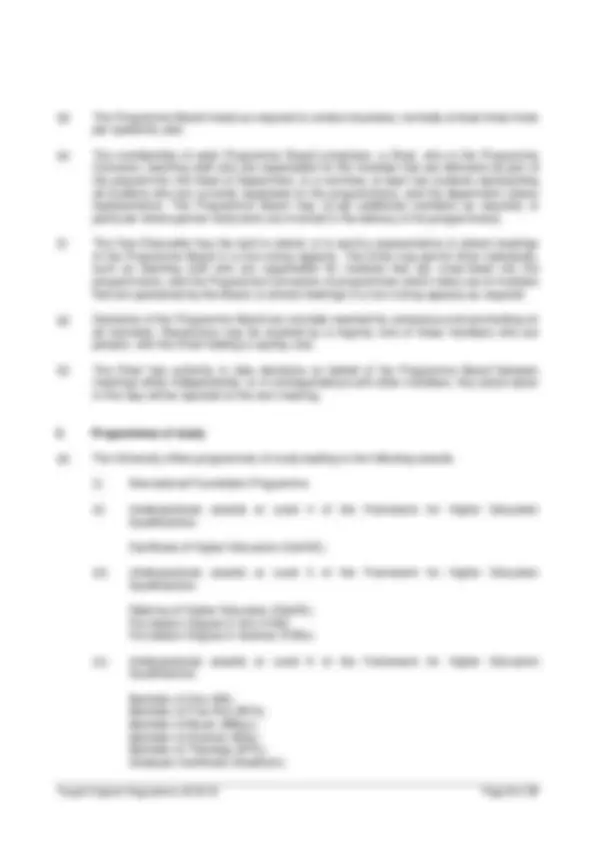
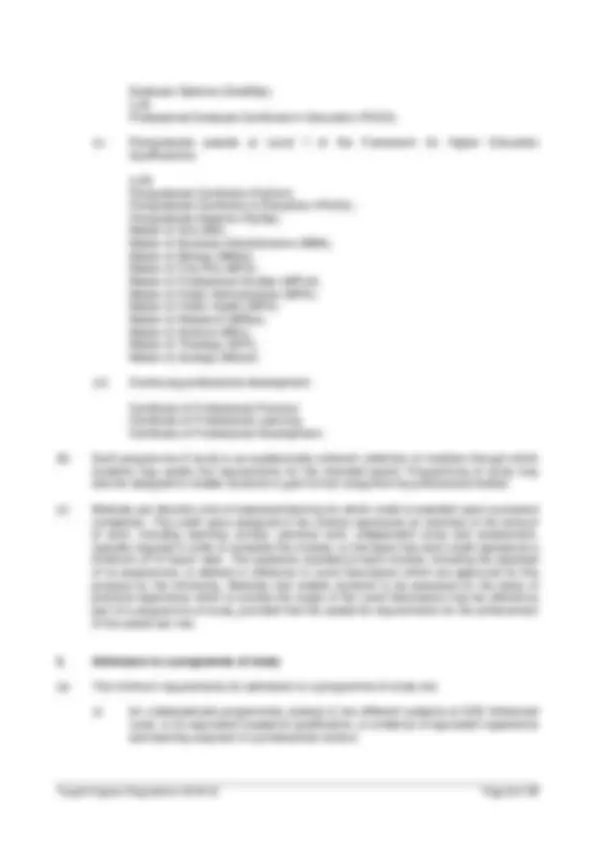
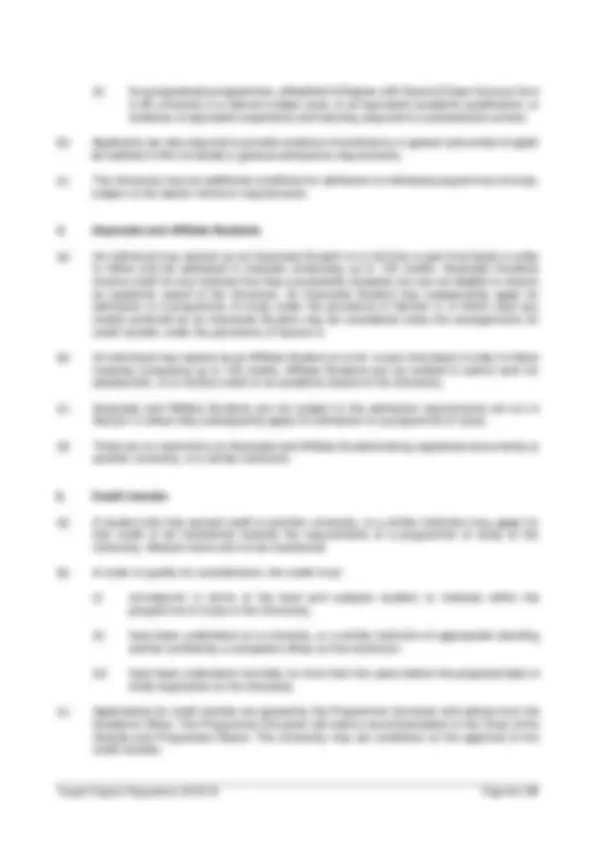
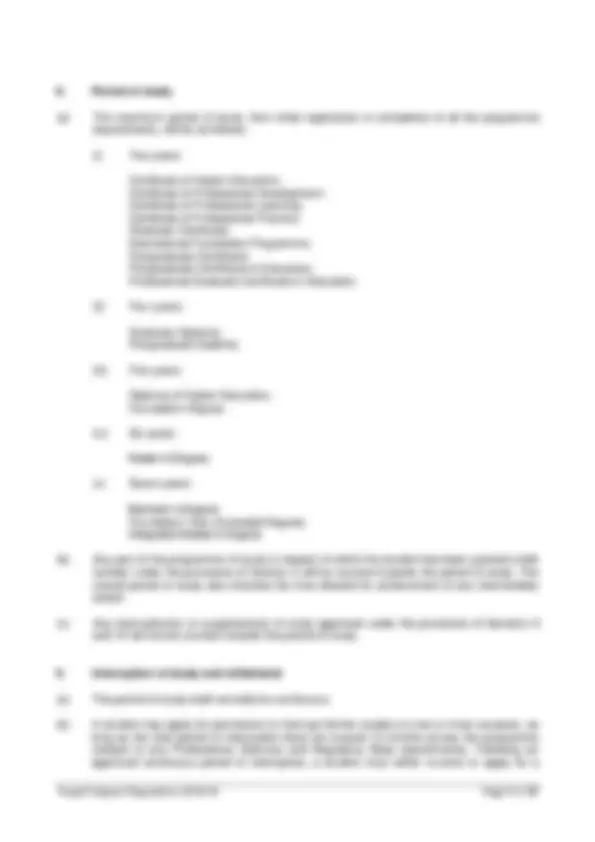
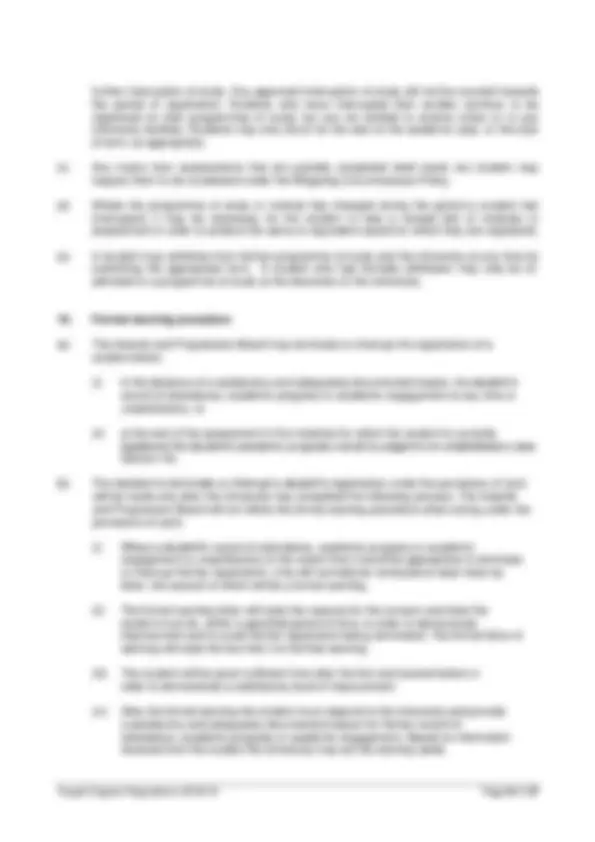
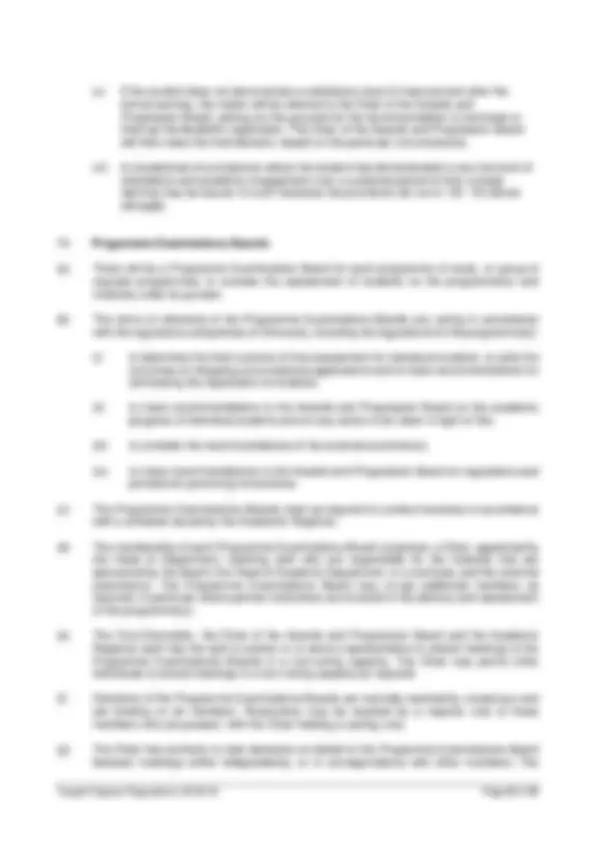
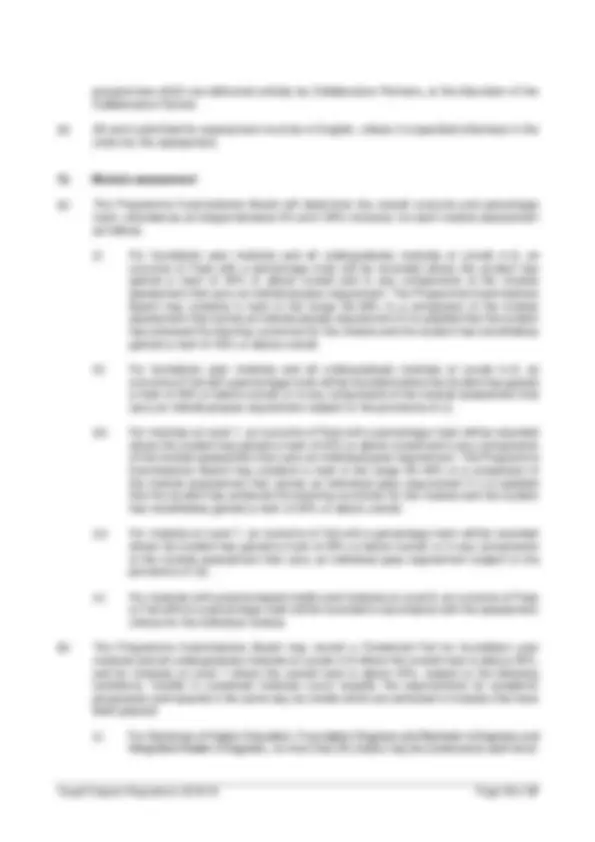
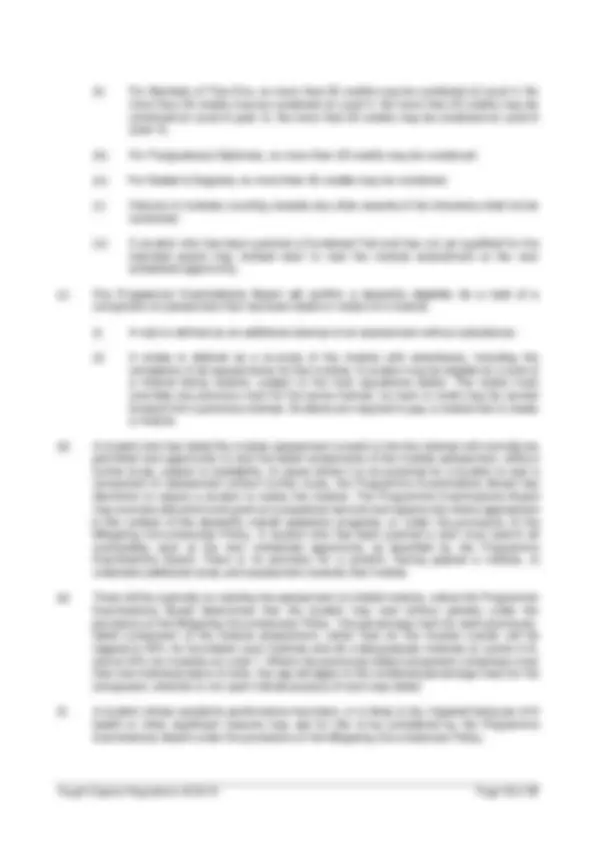
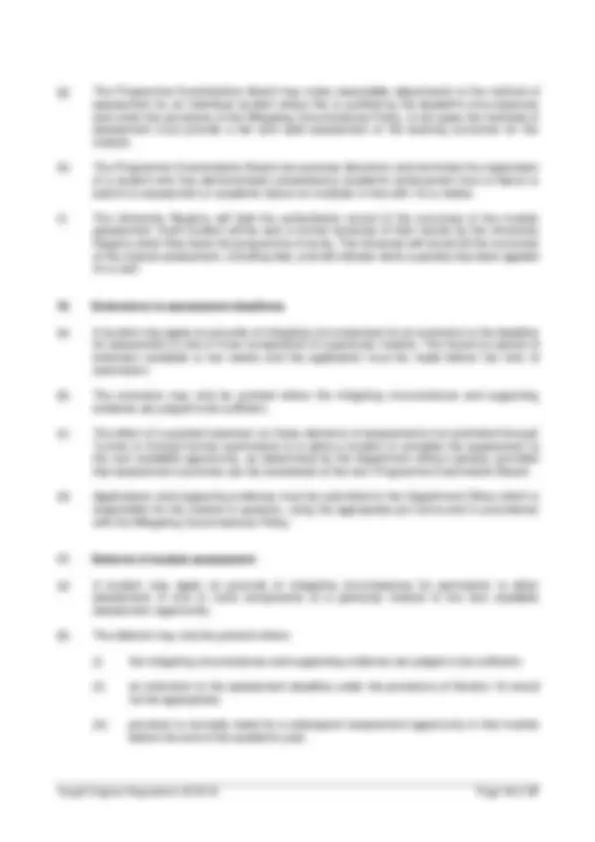
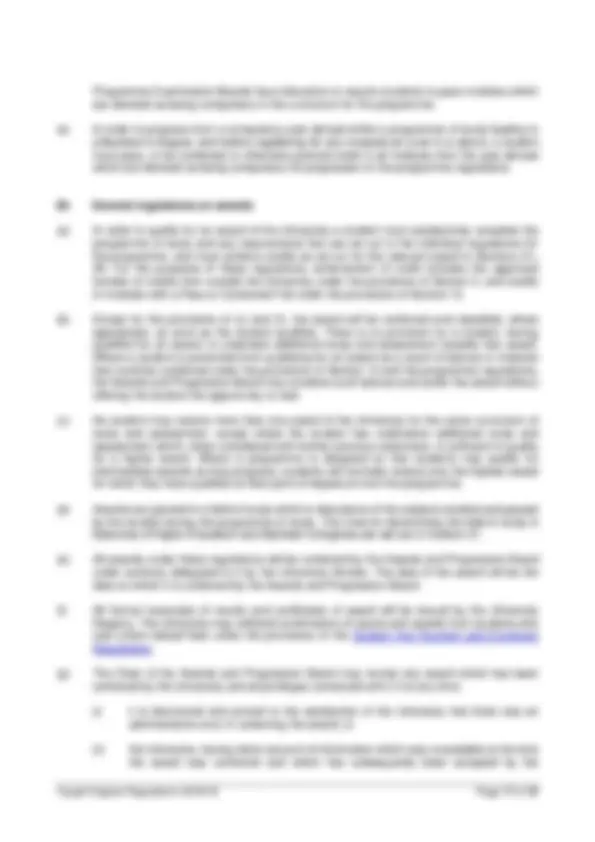
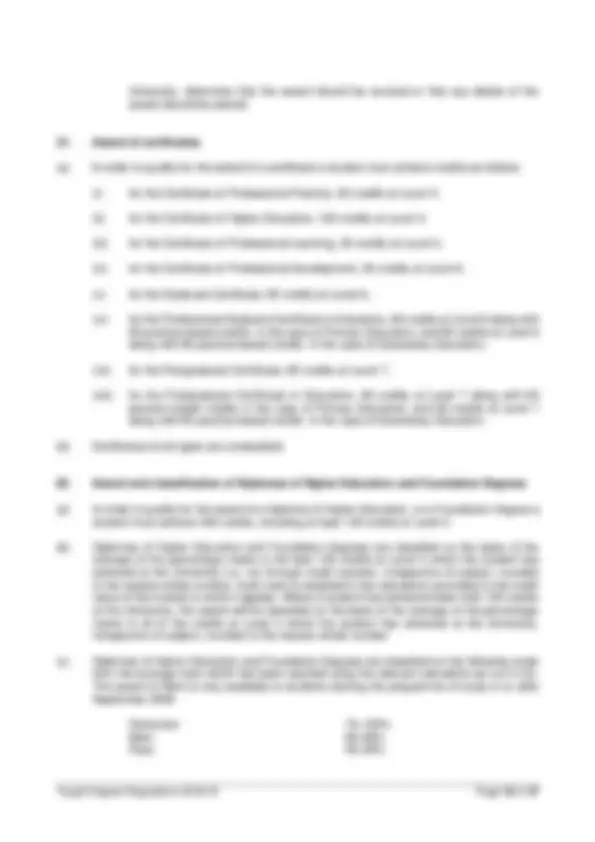
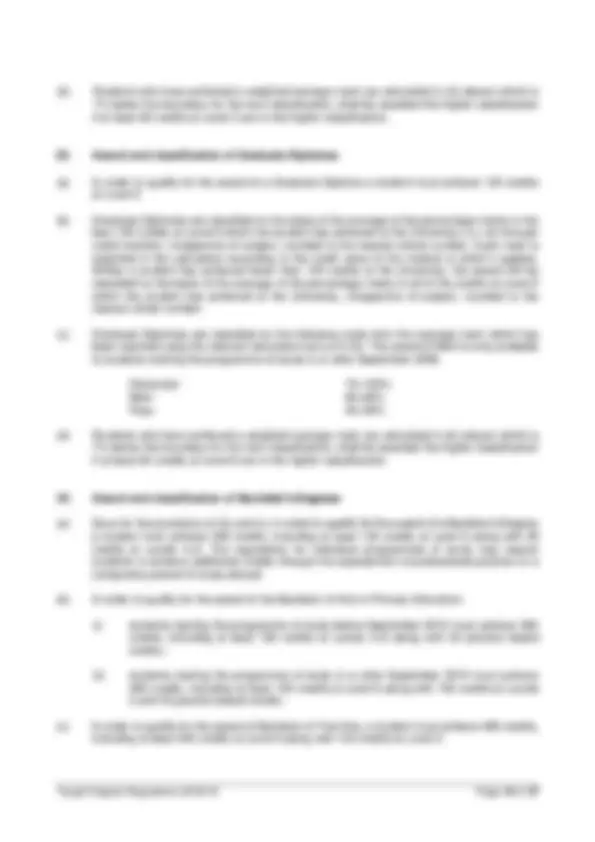
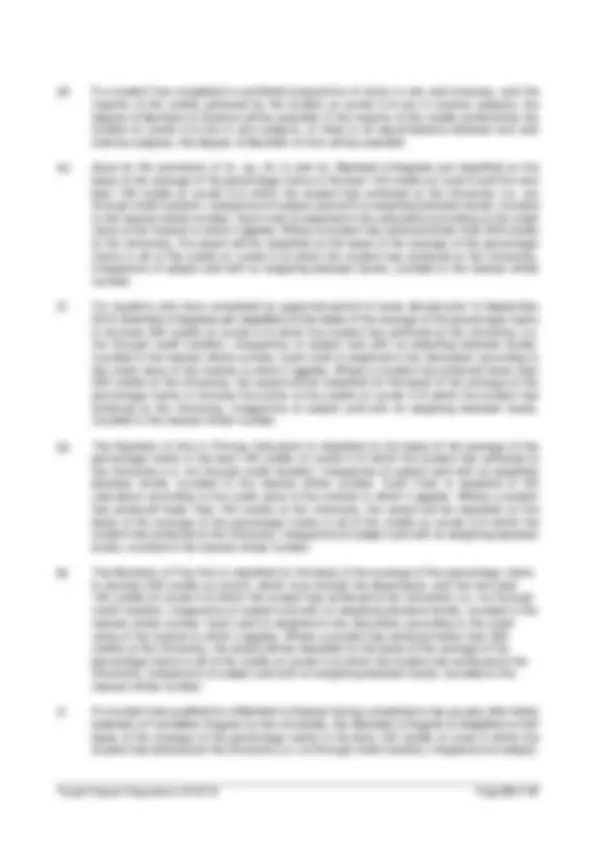
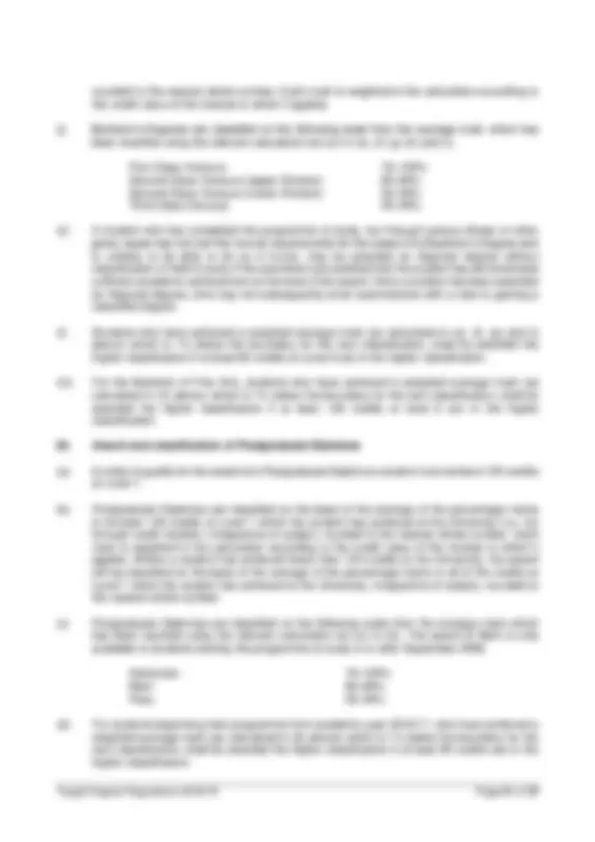
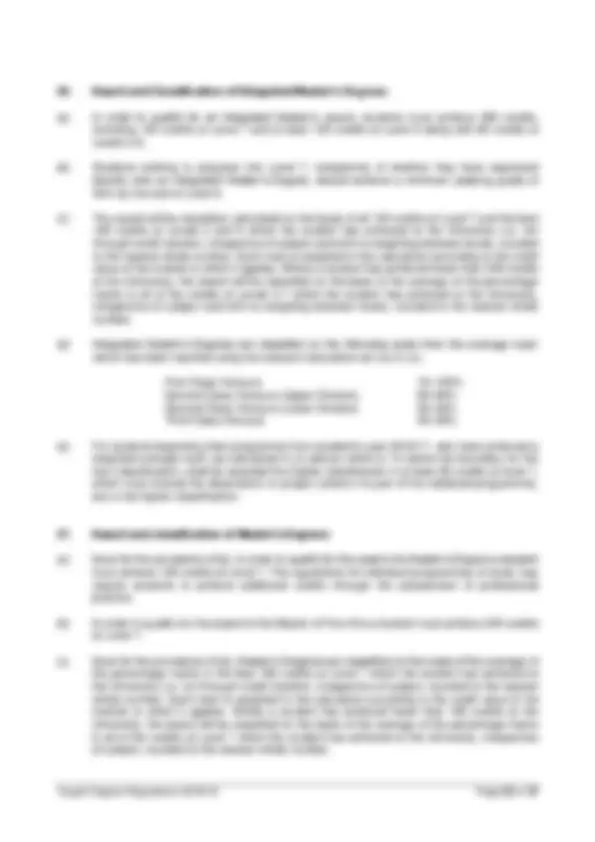
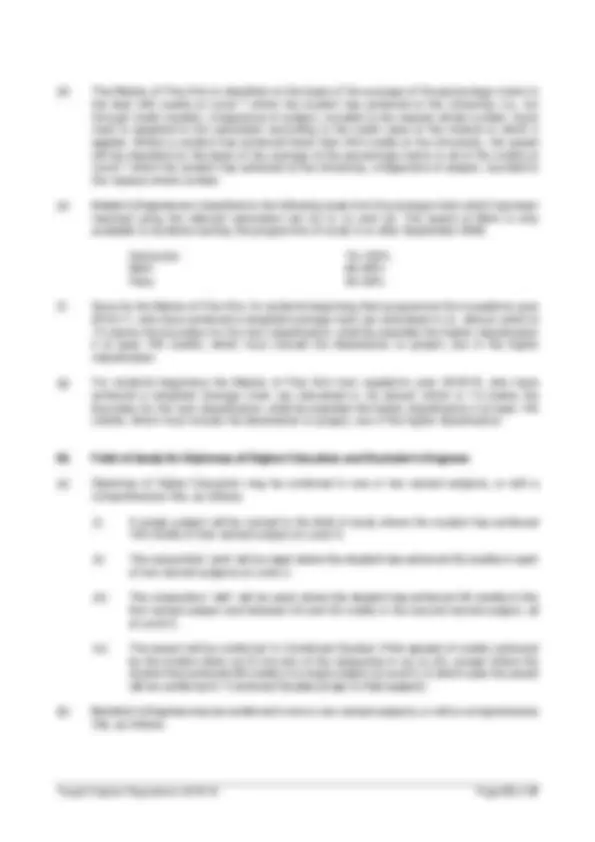
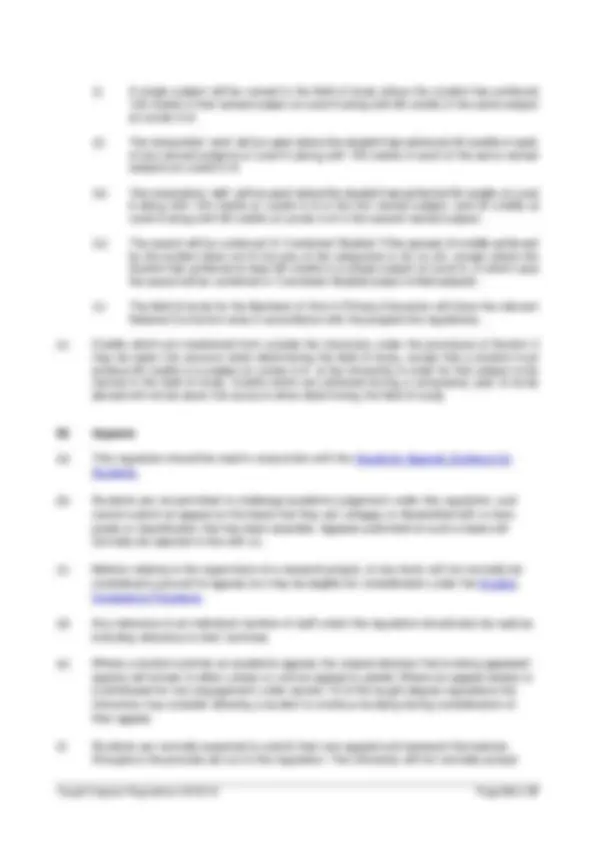
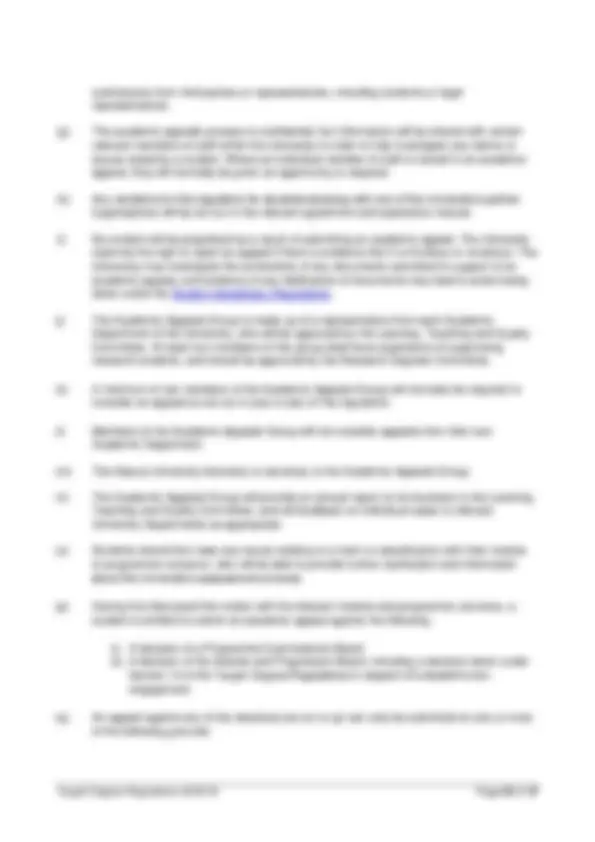
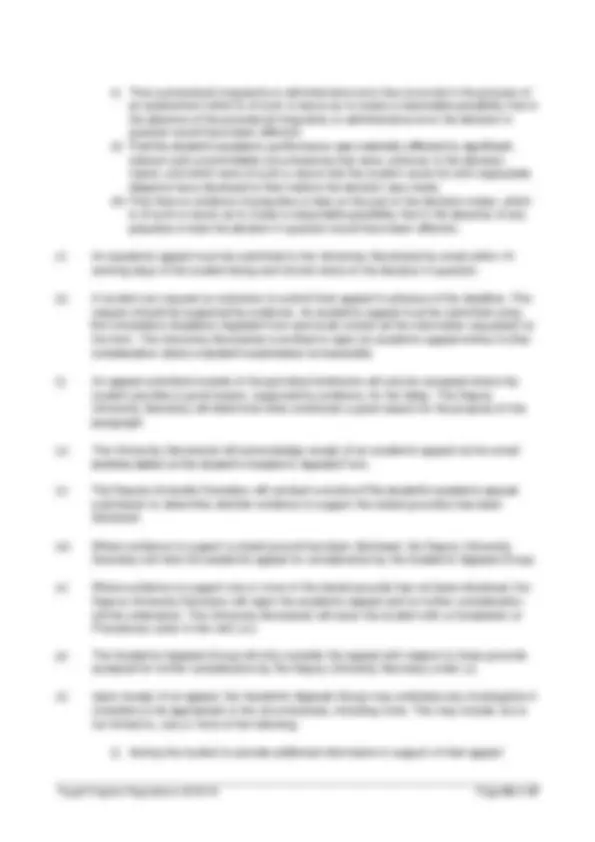
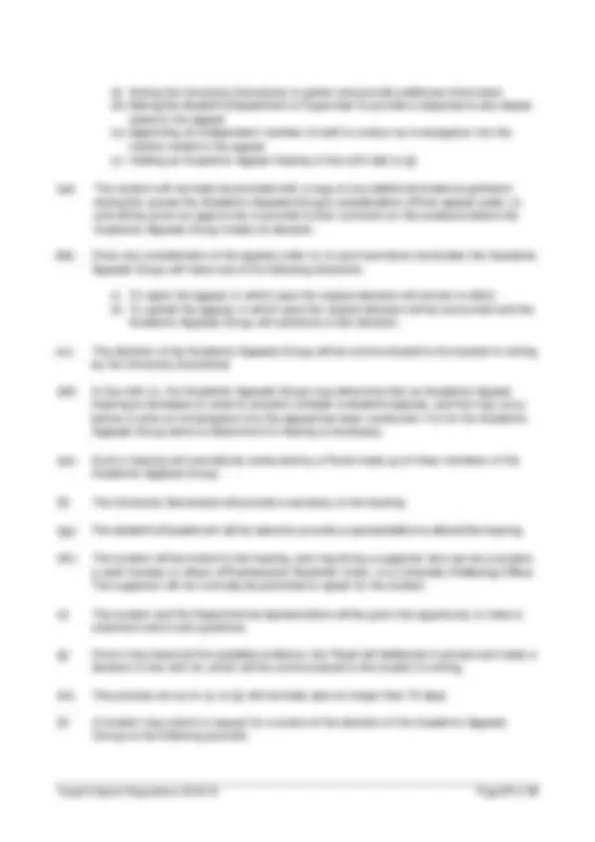
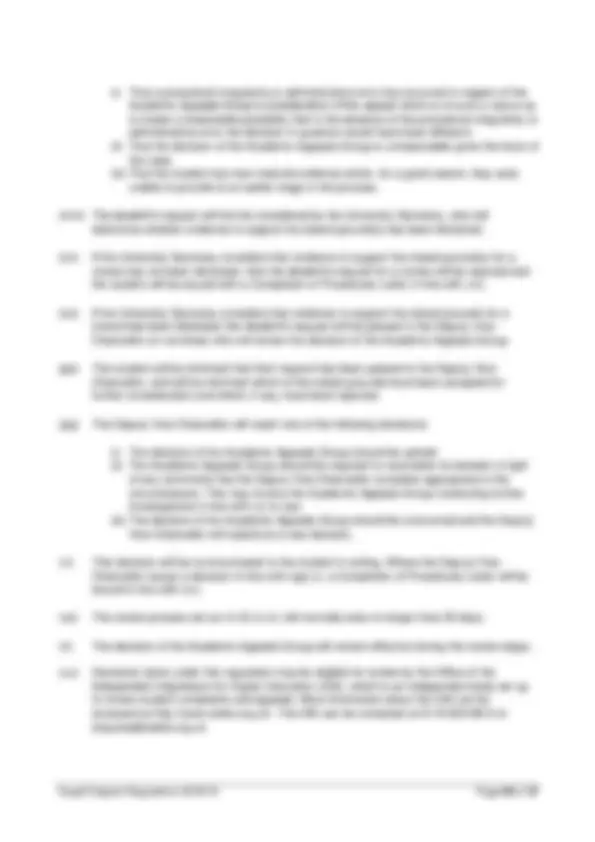
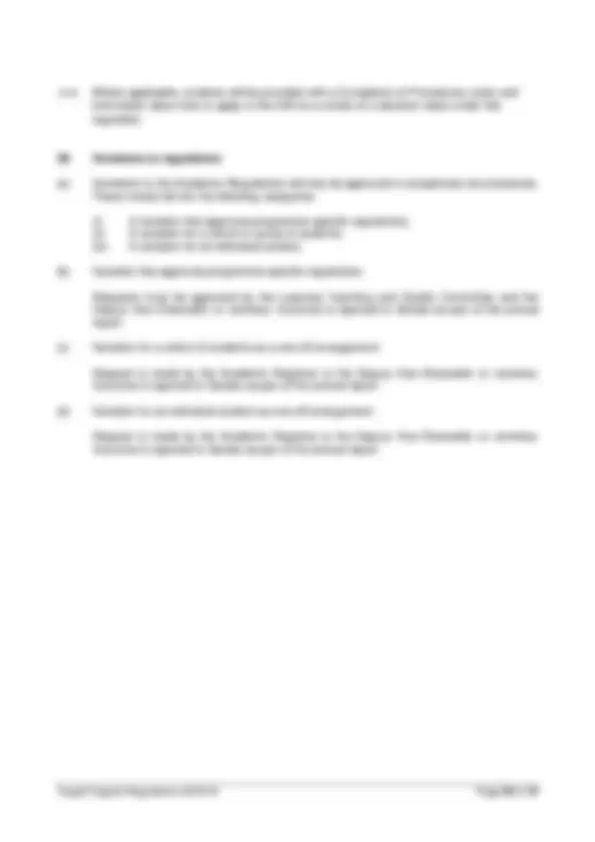
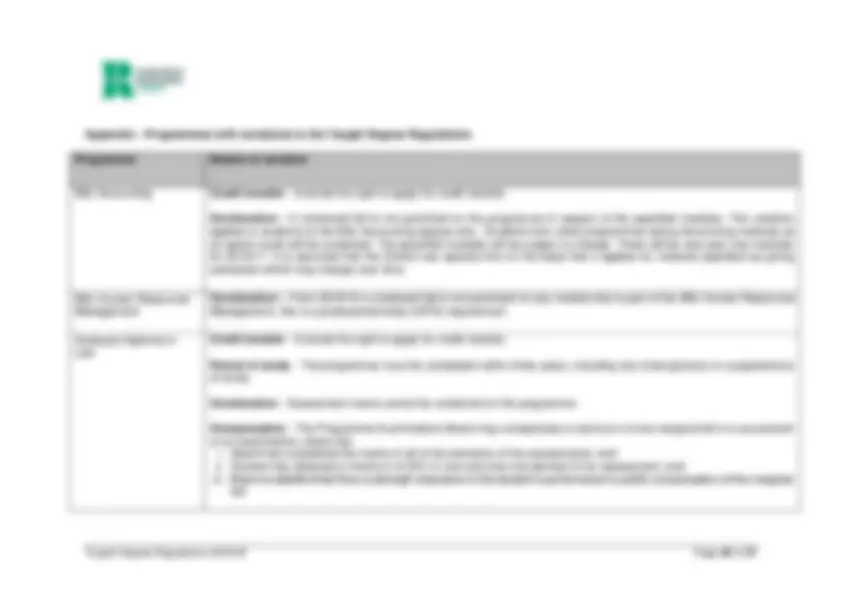
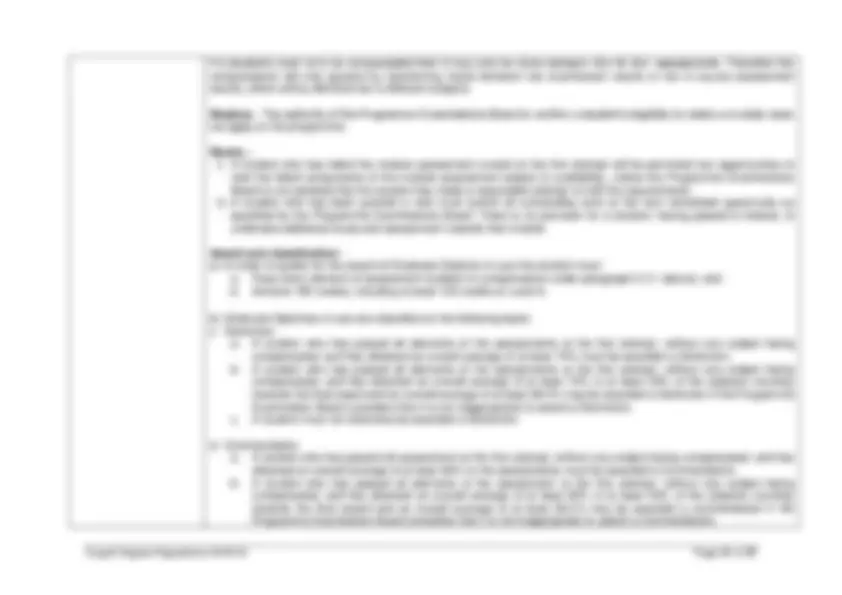
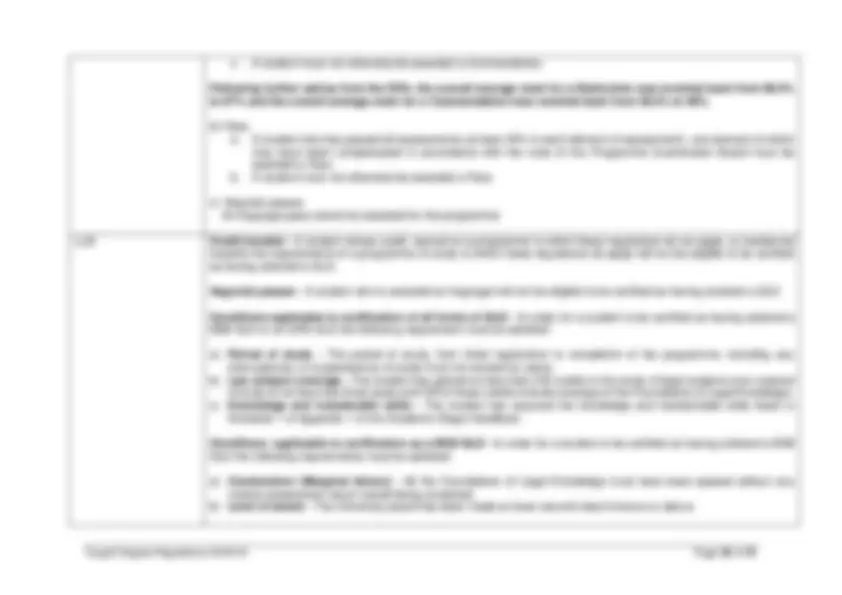
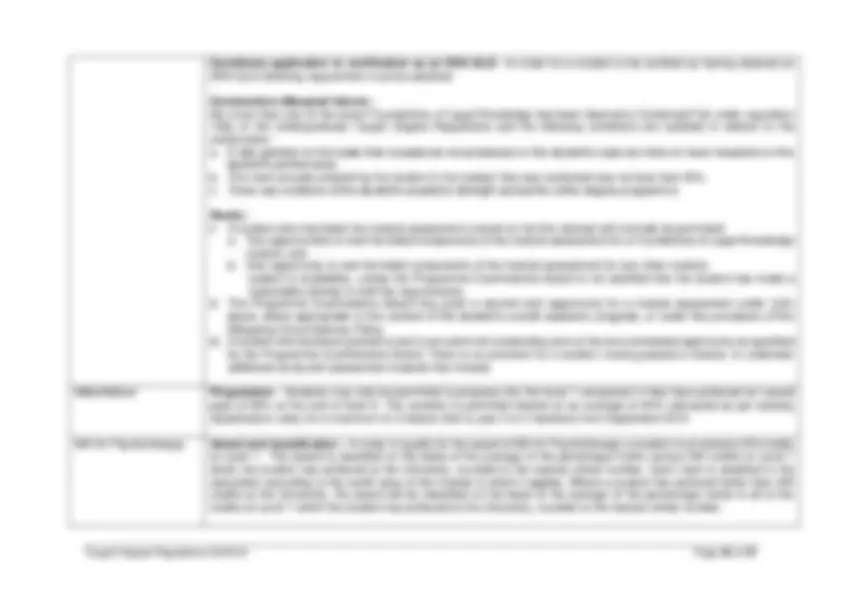
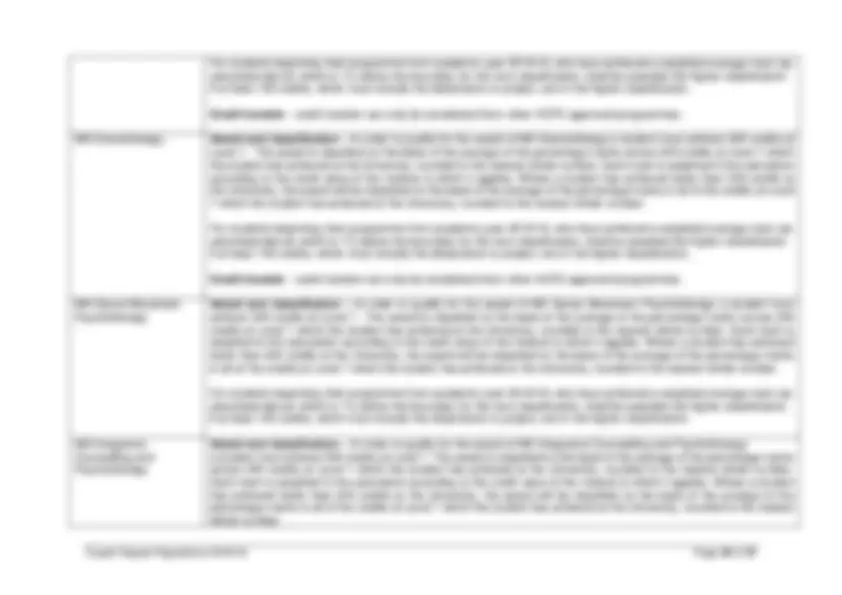
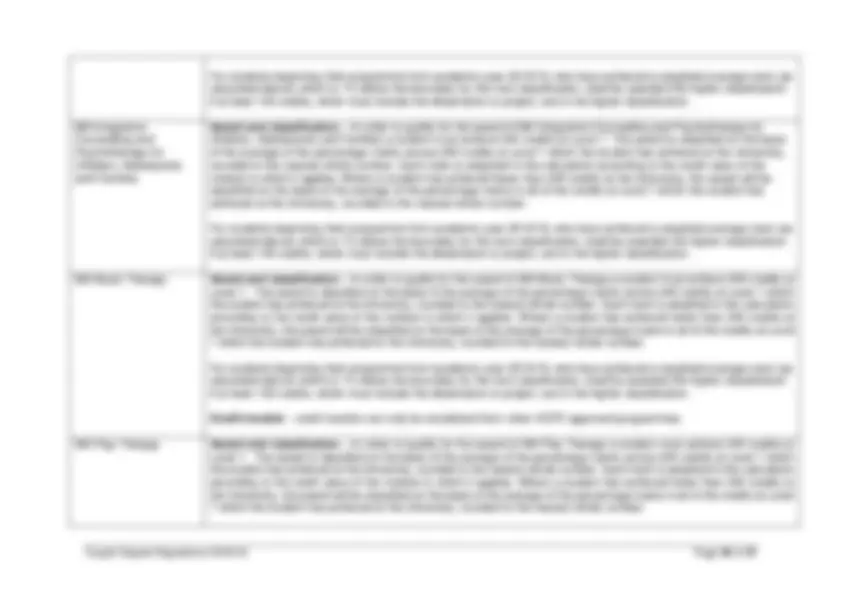
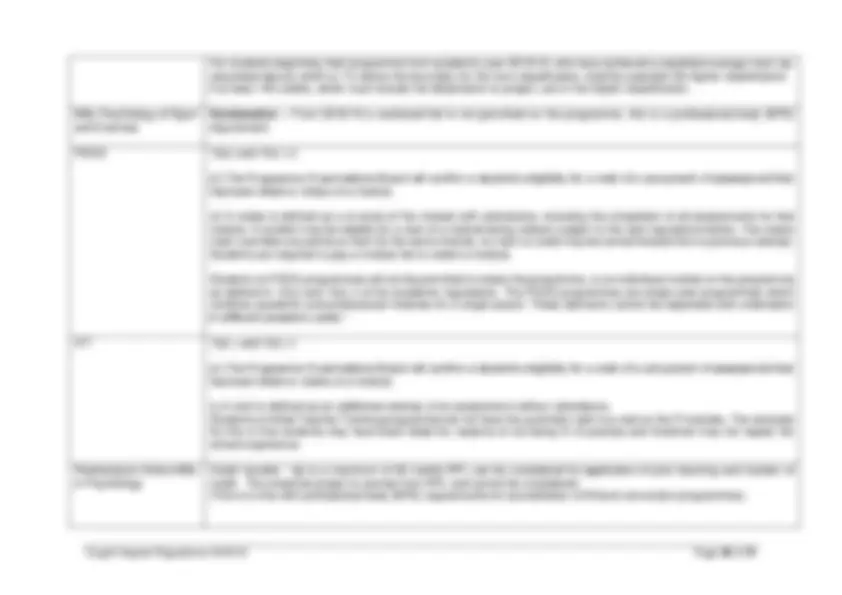



Study with the several resources on Docsity

Earn points by helping other students or get them with a premium plan


Prepare for your exams
Study with the several resources on Docsity

Earn points to download
Earn points by helping other students or get them with a premium plan
Community
Ask the community for help and clear up your study doubts
Discover the best universities in your country according to Docsity users
Free resources
Download our free guides on studying techniques, anxiety management strategies, and thesis advice from Docsity tutors
The roles and responsibilities of the Programme Board and Awards and Progression Board in managing curriculum changes, student experience, academic standards, and examinations for various programmes of study at a UK university. It also covers admission requirements, credit transfer restrictions, and progression rules.
What you will learn
Typology: Summaries
1 / 38

This page cannot be seen from the preview
Don't miss anything!































**1. Programme Conveners and Programme Boards
Last updated: July 2018
TAUGHT DEGREE REGULATIONS 201 8/
These regulations apply to programmes of study leading to undergraduate awards and taught postgraduate awards at Master’s Level except in cases where professional body requirements dictate otherwise. There are separate regulations for Research Degrees and Professional Doctorate programmes, and for degrees awarded jointly with other institutions.
These regulations should be read in conjunction with the Student Disciplinary Regulations.
1. Programme Conveners and Programme Boards
(a) The relevant Head of Department will appoint a Programme Convener for each programme of study, or group of cognate programmes, to be responsible for the management of the programme(s).
(b) The relevant Department Committee will establish a Programme Board for each programme of study, or group of cognate programmes.
(c) The terms of reference of the Programme Board are, acting in accordance with the regulations for the programme(s) of study and the expectations of established internal and external quality assurance systems: (i) to consider initial proposals for changes to the curriculum and other learning and teaching enhancements, prior to presenting to the Learning, Teaching and Quality Group for approval; (ii) to review student experience and outcome data, identifying actions for programme annual review; (iii) to review academic standards through the annual report from the external examiner(s), the comparative assessment data provided by the University and other appropriate indicators and agree the response to the external examiner; (iv) to refer any issues raised to the appropriate committee, department or service provider; (v) To consider student views on matters relating to the programme; (vi) to ensure that students registered on the programme have access to full and accurate information about its operation and appropriate guidance on the academic and pastoral support services available to them; (vii) to review trends in recruitment and to agree actions as part of programme annual review, referring any issues to the appropriate service lead; (viii) to consider any other matters relative to the programme.
Graduate Diploma (GradDip); LLB; Professional Graduate Certificate in Education (PGCE). (v) Postgraduate awards at Level 7 of the Framework for Higher Education Qualifications: LLM; Postgraduate Certificate (PgCert); Postgraduate Certificate in Education (PGCE); Postgraduate Diploma (PgDip); Master of Arts (MA); Master of Business Administration (MBA); Master of Biology (MBiol); Master of Fine Arts (MFA); Master of Professional Studies (MProf); Master of Public Administration (MPA); Master of Public Health (MPH); Master of Research (MRes); Master of Science (MSc); Master of Theology (MTh); Master of Zoology (MZool). (vi) Continuing professional development: Certificate of Professional Practice; Certificate of Professional Learning; Certificate of Professional Development. (b) Each programme of study is an academically coherent collection of modules through which students may satisfy the requirements for the intended award. Programmes of study may also be designed to enable students to gain formal recognition by professional bodies.
(c) Modules are discrete units of assessed learning for which credit is awarded upon successful completion. The credit value assigned to the module represents an estimate of the amount of work, including teaching contact, practical work, independent study and assessment, typically required in order to complete the module, on the basis that each credit represents a minimum of 10 hours’ work. The academic standard of each module, including the standard of its assessment, is defined in reference to Level Descriptors which are approved for this purpose by the University. Modules that enable students to be assessed on the basis of practical experience which is outside the scope of the Level Descriptors may be offered as part of a programme of study, provided that the academic requirements for the achievement of the award are met.
3. Admission to a programme of study
(a) The minimum requirements for admission to a programme of study are:
(i) for undergraduate programmes, passes in two different subjects at GCE Advanced Level, or an equivalent academic qualification, or evidence of equivalent experience and learning acquired in a professional context;
(ii) for postgraduate programmes, a Bachelor’s Degree with Second Class Honours from a UK university in a relevant subject area, or an equivalent academic qualification, or evidence of equivalent experience and learning acquired in a professional context.
(b) Applicants are also required to provide evidence of proficiency in spoken and written English as outlined in the University’s general admissions requirements.
(c) The University may set additional conditions for admission to individual programmes of study, subject to the above minimum requirements.
4. Associate and Affiliate Students (a) An individual may register as an Associate Student on a full-time or part-time basis in order to follow and be assessed in modules comprising up to 120 credits. Associate Students receive credit for any modules that they successfully complete, but are not eligible to receive an academic award of the University. An Associate Student may subsequently apply for admission to a programme of study under the provisions of Section 3 , in which case any credits achieved as an Associate Student may be considered under the arrangements for credit transfer under the provisions of Section 5. (b) An individual may register as an Affiliate Student on a full- or part-time basis in order to follow modules comprising up to 120 credits. Affiliate Students are not entitled to submit work for assessment, or to receive credit or an academic award of the University. (c) Associate and Affiliate Students are not subject to the admission requirements set out in Section 3 unless they subsequently apply for admission to a programme of study. (d) There are no restrictions on Associate and Affiliate Students being registered concurrently at another university, or a similar institution. 5. Credit transfer
(a) A student who has earned credit at another university, or a similar institution may apply for that credit to be transferred towards the requirements of a programme of study at the University. Module marks will not be transferred. (b) In order to qualify for consideration, the credit must: (i) correspond, in terms of the level and subjects studied, to modules within the programme of study at the University; (ii) have been undertaken at a university, or a similar institution of appropriate standing and be certified by a competent officer at that institution; (iii) have been undertaken normally no more than five years before the proposed date of initial registration at the University. (c) Applications for credit transfer are agreed by the Programme Convener with advice from the Academic Office. The Programme Convener will make a recommendation to the Chair of the Awards and Progression Board. The University may set conditions on the approval of the credit transfer.
(iii) on returning from an approved interruption of study.
(b) If a student does not enrol or re-enrol within relevant deadlines his/her registration on the programme will be cancelled or terminated as appropriate.
(c) In order to complete the enrolment process, a student must:
(i) complete the administrative procedures for enrolment; (ii) make acceptable arrangements to pay fees and any outstanding debts to the University (see the Student Fee Payment and Enrolment Regulations); (iii) agree to comply with the terms of the Student Contract; (iv) register for modules and/or module assessments in accordance with the regulations for the programme of study.
(d) Students may enrol on a full-time or part-time basis, or may transfer between full-time and part-time status, subject to the following restrictions and any additional rules which may apply to individual programmes of study. (i) A full-time student on a programme of study leading to a Certificate of Higher Education, a Diploma of Higher Education, a Foundation Degree, a Bachelor’s Degree or the Master of Fine Arts is normally expected to register for modules comprising 120 credits each year. A full-time student on a programme of study leading to any other Master’s Degree is normally expected to register for modules comprising 180 credits each year. (ii) Notwithstanding the expectations of (i), in order to qualify for full-time status, an undergraduate student must register for modules comprising at least 90 credits in an academic year, or at least 60 credits if the student is registered for a single academic term. No undergraduate student may register for more than 140 credits on any single programme of study in an academic year. (iii) A part-time undergraduate student must register for modules comprising no more than 80 credits in an academic year, or no more than 40 credits if the student is registered for a single academic term. (iv) Notwithstanding the expectations of (i), in order to qualify for full-time status, a postgraduate student must register for modules comprising at least 130 credits if the programme is delivered over 12 calendar months, or at least 90 credits if the programme is delivered over 9 months, or at least 60 credits if the student is registered for a single academic term. No postgraduate student may register for more than 200 credits over 12 calendar months. (v) A part-time postgraduate student must register for modules comprising no more than 120 credits in an academic year, or no more than 40 credits if the student is registered for a single academic term.
8. Period of study
(a) The maximum period of study, from initial registration to completion of all the programme requirements, will be as follows: (i) Two years: Certificate of Higher Education; Certificate of Professional Development; Certificate of Professional Learning; Certificate of Professional Practice; Graduate Certificate; International Foundation Programme; Postgraduate Certificate; Postgraduate Certificate in Education; Professional Graduate Certificate in Education. (ii) Four years: Graduate Diploma; Postgraduate Diploma. (iii) Five years: Diploma of Higher Education; Foundation Degree. (iv) Six years: Master’s Degree. (v) Seven years: Bachelor’s Degree Foundation Year (Extended Degree) Integrated Master’s Degree (b) Any part of the programme of study in respect of which the student has been granted credit transfer under the provisions of Section 5 will be counted towards the period of study. The overall period of study also includes the time allowed for achievement of any intermediate award. (c) Any interruption(s) or suspension(s) of study approved under the provisions of Sections 9 and 18 will not be counted towards the period of study.
9. Interruption of study and withdrawal
(a) The period of study shall normally be continuous.
(b) A student may apply for permission to interrupt his/her studies on one or more occasion, as long as the total period of interruption does not exceed 12 months across the programme (subject to any Professional, Statutory and Regulatory Body requirements). Following an approved continuous period of interruption, a student must either re-enrol or apply for a
(v) If the student does not demonstrate a satisfactory level of improvement after the formal warning, the matter will be referred to the Chair of the Awards and Progression Board, setting out the grounds for the recommendation to terminate or interrupt the student’s registration. The Chair of the Awards and Progression Board will then make the final decision, based on the particular circumstances. (vi) In exceptional circumstances where the student has demonstrated a very low level of attendance and academic engagement over a sustained period of time a single warning may be issued. In such instances the provisions set out in 10ii - 10v above will apply.
11. Programme Examinations Boards
(a) There will be a Programme Examinations Board for each programme of study, or group of cognate programmes, to oversee the assessment of students on the programme(s) and modules under its purview.
(b) The terms of reference of the Programme Examinations Boards are, acting in accordance with the regulations and policies of University, including the regulations for the programme(s): (i) to determine the final outcome of that assessment for individual students, to ratify the outcomes of mitigating circumstances applications and to make recommendations for terminating the registration of students; (ii) to make recommendations to the Awards and Progression Board on the academic progress of individual students and on any action to be taken in light of this; (iii) to consider the recommendations of the external examiner(s); (iv) to make recommendations to the Awards and Progression Board on regulations and procedures governing its business.
(c) The Programme Examinations Boards meet as required to conduct business in accordance with a schedule issued by the Academic Registrar.
(d) The membership of each Programme Examinations Board comprises: a Chair, appointed by the Head of Department; teaching staff who are responsible for the modules that are sponsored by the Board; the Head of Academic Department, or a nominee; and the external examiner(s). The Programme Examinations Board may co-opt additional members as required, in particular where partner institutions are involved in the delivery and assessment of the programme(s).
(e) The Vice-Chancellor, the Chair of the Awards and Progression Board and the Academic Registrar each has the right to attend, or to send a representative to attend meetings of the Programme Examinations Boards in a non-voting capacity. The Chair may permit other individuals to attend meetings in a non-voting capacity as required.
(f) Decisions of the Programme Examinations Boards are normally reached by consensus and are binding on all members. Resolutions may be reached by a majority vote of those members who are present, with the Chair holding a casting vote.
(g) The Chair has authority to take decisions on behalf of the Programme Examinations Board between meetings either independently, or in correspondence with other members. The
Chair will involve at least one other member of the Board in any decisions about an individual student. Any action taken in this way will be reported at the next meeting.
(h) The proceedings of Programme Examinations Boards are confidential to those taking part and appropriate officers of the University.
12. Awards and Progression Board
(a) The Awards and Progression Board acts with the delegated authority of Senate on all matters relating to the award of taught undergraduate and postgraduate certificates, diplomas and degrees of the University.
(b) The terms of reference of the Awards and Progression Board are, acting in accordance with the regulations and policies of University: (i) to confer academic awards to eligible students and to determine award classifications and fields of study; (ii) to consider recommendations from the Programme Examinations Boards on the academic progress of individual students and to determine the action to be taken in light of this; (iii) to review and make recommendations to Senate on the academic regulations; (iv) to consider any relevant matters referred to it by the University or a Programme Examinations Board; (v) to report annually to Senate.
(c) The Awards and Progression Board meets as required to conduct business in accordance with a schedule issued by the Academic Registrar.
(d) The membership of the Awards and Progression Board comprises: a Chair, appointed by the Vice-Chancellor; the Chair of each Programme Examinations Board presenting recommendations at that meeting; and an external adviser appointed by the Vice-Chancellor. The role of the external adviser is to provide, an independent evaluation of the fairness and suitability of the proceedings of the Awards and Progression Board, and to ensure that there is a consistent application of the procedures and regulations.
(e) The Vice-Chancellor and the Academic Registrar each has the right to attend, or to send a representative to attend meetings of the Awards and Progression Board in a non-voting capacity. The Chair may permit other individuals to attend meetings in a non-voting capacity as required.
(f) Decisions of the Awards and Progression Board are normally reached by consensus and are binding on all members. Resolutions may be reached by a majority vote of those members who are present, with the Chair holding a casting vote.
(g) The Chair has authority to take decisions on behalf of the Programme Examinations Board between meetings either independently, or in correspondence with other members. Any action taken in this way will be reported at the next meeting.
programmes which are delivered entirely by Collaborative Partners, at the discretion of the Collaborative Partner. (d) All work submitted for assessment must be in English, unless it is specified otherwise in the rubric for the assessment.
15. Module assessment
(a) The Programme Examinations Board will determine the overall outcome and percentage mark, recorded as an integer between 0% and 100% inclusive, for each module assessment as follows. (i) For foundation year modules and all undergraduate modules at Levels 4 – 6 , an outcome of Pass with a percentage mark will be recorded where the student has gained a mark of 40% or above overall and in any components of the module assessment that carry an individual pass requirement. The Programme Examinations Board may condone a mark in the range 30–39% in a component of the module assessment that carries an individual pass requirement if it is satisfied that the student has achieved the learning outcomes for the module and the student has nonetheless gained a mark of 40% or above overall. (ii) For foundation year modules and all undergraduate modules at Levels 4 – 6 , an outcome of Fail with a percentage mark will be recorded where the student has gained a mark of 39% or below overall, or in any components of the module assessment that carry an individual pass requirement subject to the provisions of (i). (iii) For modules at Level 7 , an outcome of Pass with a percentage mark will be recorded where the student has gained a mark of 50% or above overall and in any components of the module assessment that carry an individual pass requirement. The Programme Examinations Board may condone a mark in the range 40–49% in a component of the module assessment that carries an individual pass requirement if it is satisfied that the student has achieved the learning outcomes for the module and the student has nonetheless gained a mark of 50% or above overall. (iv) For modules at Level 7 , an outcome of Fail with a percentage mark will be recorded where the student has gained a mark of 49 % or below overall, or in any components of the module assessment that carry an individual pass requirement subject to the provisions of (iii). (v) For modules with practice based credits and modules at Level 8 , an outcome of Pass or Fail without a percentage mark will be recorded in accordance with the assessment criteria for the individual module. (b) The Programme Examinations Board may record a Condoned Fail for foundation year modules and all undergraduate modules at Levels 4 – 6 where the overall mark is above 30%, and for modules at Level 7 where the overall mark is above 40%, subject to the following conditions. Credits in condoned modules count towards the requirements for academic progression and awards in the same way as credits which are achieved in modules that have been passed. (i) For Diplomas of Higher Education, Foundation Degrees and Bachelor’s Degrees and Integrated Master’s Degrees, no more than 20 credits may be condoned at each level.
(ii) For Bachelor of Fine Arts, no more than 20 credits may be condoned at Level 4. No more than 20 credits may be condoned at Level 5. No more than 20 credits may be condoned at Level 6 (year 3). No more than 20 credits may be condoned at Level 6 (year 4). (iii) For Postgraduate Diplomas, no more than 20 credits may be condoned. (iv) For Master’s Degrees, no more than 30 credits may be condoned. (v) Failures in modules counting towards any other awards of the University shall not be condoned. (vi) A student who has been granted a Condoned Fail and has not yet qualified for the intended award may instead elect to resit the module assessment at the next scheduled opportunity.
(c) The Programme Examinations Board will confirm a student’s eligibility for a resit of a component of assessment that has been failed or retake of a module. (i) A resit is defined as an additional attempt of an assessment without attendance. (ii) A retake is defined as a re-study of the module with attendance, including the completion of all assessments for that module. A student may be eligible for a resit of a module being retaken, subject to the resit regulations below. The retake mark overrides any previous mark for the same module, no mark or credit may be carried forward from a previous attempt. Students are required to pay a module fee to retake a module.
(d) A student who has failed the module assessment overall on the first attempt will normally be permitted one opportunity to resit the failed components of the module assessment, without further study, subject to availability. In cases where it is not practical for a student to resit a component of assessment without further study, the Programme Examinations Board has discretion to require a student to retake the module. The Programme Examinations Board may exercise discretion and grant an exceptional second resit opportunity where appropriate in the context of the student’s overall academic progress, or under the provisions of the Mitigating Circumstances Policy. A student who has been granted a resit must submit all outstanding work at the next scheduled opportunity as specified by the Programme Examinations Board. There is no provision for a student, having passed a module, to undertake additional study and assessment towards that module.
(e) There will be a penalty on resitting the assessment of a failed module, unless the Programme Examinations Board determines that the student may resit without penalty under the provisions of the Mitigating Circumstances Policy. The percentage mark for each previously- failed component of the module assessment, rather than for the module overall, will be capped at 40% for foundation year modules and all undergraduate modules at Levels 4 – 6 , and at 50% for modules at Level 7. Where the previously-failed component comprises more than one individual piece of work, the cap will apply to the combined percentage mark for the component, whether or not each individual piece of work was failed.
(f) A student whose academic performance has been, or is likely to be, impaired because of ill health or other significant reasons may ask for this to be considered by the Programme Examinations Board under the provisions of the Mitigating Circumstances Policy.
(c) The application to defer should be submitted sufficiently in advance so that the student would still have the opportunity to undertake the assessment at the normal time if the application were to be refused, and must be submitted before the date and time of the assessment in question. The Programme Examinations Board may exceptionally accept an application after the deadline if it is satisfied that the student could not with reasonable diligence have disclosed his/her circumstances at the appropriate time.
(d) Applications and supporting evidence must be submitted to the Department Office which is responsible for the module in question, using the appropriate pro forma and in accordance with the Mitigating Circumstances Policy.
(e) A student who has been granted a deferral may nonetheless decide to undertake the assessment at the normal time, in which case the deferral automatically shall be cancelled.
18. Assessment of student progress
(a) The academic progress of each student will be reviewed at least annually by the Programme Examinations Boards. Subject to the provisions of Section 19 , any specific requirements in respect of academic progress will be set out in the programme regulations.
(b) The Programme Examinations Board will submit one of the following recommendations to the Awards and Progression Board if at any time a student is deemed to have made unsatisfactory academic progress, or the student has not met the requirements for progression set out in the programme regulations or in Section 19. (i) Permit the student to resit the failed component(s) of one or more modules without attendance over the summer. (ii) Suspend the student’s studies for the following academic year in order to resit the failed component(s) of one or more modules without attendance. (iii) Permit the student to register on a full-time or part-time basis in the following academic year in order to retake the failed modules with attendance a second time, or to attend substitutes for the failed modules. Students who are registered on this basis may be permitted to resit the failed component(s) of one or more modules without attendance alongside the modules which they are attending. Students are permitted to retake a module not passed a maximum of once during the registration period. (iv) Permit the student to transfer to a different programme of study for which all the requirements to progress to the next year of the programme have already been met, subject to the approval of the Programme Convener. (v) Terminate the student’s registration on the programme. Students who have had their registration terminated due to academic failure will not be re-admitted onto the same programme of study.
19. Progression within programmes of study
(a) For an undergraduate programme of study which includes a foundation year and leads to a Diploma of Higher Education, Foundation Degree or Bachelor’s Degree. In order to progress from the foundation year to the next level of the programme of study:
(i) a student who is registered on a full-time basis must pass, or be condoned or otherwise granted credit in modules from the programme of study to the value of at least 100 credits. In addition, for programmes of study which require students to acquire specific knowledge before progressing to the next year, Programme Examination Boards have discretion to require students to pass modules which are denoted as being compulsory in the curriculum for the programme (ii) for a student beginning their programme from academic year 201 7 /1 8 who has progressed with 100 credits from the foundation year to Level 4, must complete the remaining 20 credits before progressing to Level 5 (iii) a student who is registered on a part-time basis must demonstrate satisfactory academic progress and achievement in the context of the modules undertaken in that academic year and the requirements of the programme regulations.
(b) In order to progress from Level 4 to Level 5 of a programme of study leading to a Diploma of Higher Education, Foundation Degree or Bachelor’s Degree, and before registering for any modules at Level 5 or above: (i) a student who is registered on a full-time basis must pass, or be condoned or otherwise granted credit in modules from the programme of study to the value of at least 100 credits. In addition, for programmes of study which require students to acquire specific knowledge before progressing to the next year, Programme Examination Boards have discretion to require students to pass modules which are denoted as being compulsory in the curriculum for the programme. (ii) a student who is registered on a part-time basis must demonstrate satisfactory academic progress and achievement in the context of the modules undertaken in that academic year and the requirements of the programme regulations.
(c) In order to progress from Level 5 to Level 6 of a programme of study leading to a Bachelor’s Degree, and before registering for any modules at Level 6 or above: (i) a student who is registered on a full-time basis must pass, or be condoned or otherwise granted credit in modules from the programme of study to the value of at least 220 credits with a minimum of 100 credits at Level 5. In addition, for programmes of study which require students to acquire specific knowledge before progressing to the next year, Programme Examination Boards have discretion to require students to pass modules which are denoted as being compulsory in the curriculum for the programme. (ii) a student who is registered on a part-time basis must demonstrate satisfactory academic progress and achievement in the context of the modules undertaken in that academic year and the requirements of the programme regulations.
(d) In order to progress from Level 6 (year 3) to Level 6 (year 4) of a programme of study leading to a Batchelor of Fine Arts, and before registering for any modules at Level 6 (year 4): a student who is registered on a full-time basis must pass, or be condoned or otherwise granted credit in modules from the programme of study to the value of at least 340 credits with a minimum of 100 credits at Level 6 (year 3). In addition, for programmes of study, which require students to acquire specific knowledge before progressing to the next year,
University, determine that the award should be revoked or that any details of the award should be altered.
21. Award of certificates
(a) In order to qualify for the award of a certificate a student must achieve credits as follows:
(i) for the Certificate of Professional Practice, 30 credits at Level 4 ; (ii) for the Certificate of Higher Education, 120 credits at Level 4 ; (iii) for the Certificate of Professional Learning, 30 credits at Level 5 ; (iv) for the Certificate of Professional Development, 30 credits at Level 6 ; (v) for the Graduate Certificate, 60 credits at Level 6 ; (vi) for the Professional Graduate Certificate in Education, 60 credits at Level 6 along with 60 practice based credits in the case of Primary Education, and 60 credits at Level 6 along with 90 practice based credits in the case of Secondary Education; (vii) for the Postgraduate Certificate, 60 credits at Level 7 ; (viii) for the Postgraduate Certificate in Education, 60 credits at Level 7 along with 60 practice based credits in the case of Primary Education, and 60 credits at Level 7 along with 60 practice based credits in the case of Secondary Education.
(b) Certificates of all types are unclassified.
22. Award and classification of Diplomas of Higher Education and Foundation Degrees
(a) In order to qualify for the award of a Diploma of Higher Education, or a Foundation Degree a student must achieve 240 credits, including at least 120 credits at Level 5. (b) Diplomas of Higher Education and Foundation Degrees are classified on the basis of the average of the percentage marks in the best 120 credits at Level 5 which the student has achieved at the University (i.e. not through credit transfer), irrespective of subject, rounded to the nearest whole number. Each mark is weighted in the calculation according to the credit value of the module to which it applies. Where a student has achieved fewer than 120 credits at the University, the award will be classified on the basis of the average of the percentage marks in all of the credits at Level 5 which the student has achieved at the University, irrespective of subject, rounded to the nearest whole number. (c) Diplomas of Higher Education and Foundation Degrees are classified on the following scale from the average mark which has been reached using the relevant calculation set out in (b). The award of Merit is only available to students starting the programme of study in or after September 2008. Distinction 70 – 100% Merit 60 – 69% Pass 40 – 59%
(d) Students who have achieved a weighted average mark (as calculated in (b) above) which is 1% below the boundary for the next classification, shall be awarded the higher classification if at least 60 credits at Level 5 are in the higher classification.
23. Award and classification of Graduate Diplomas
(a) In order to qualify for the award of a Graduate Diploma a student must achieve 120 credits at Level 6 (b) Graduate Diplomas are classified on the basis of the average of the percentage marks in the best 120 credits at Level 6 which the student has achieved at the University (i.e. not through credit transfer), irrespective of subject, rounded to the nearest whole number. Each mark is weighted in the calculation according to the credit value of the module to which it applies. Where a student has achieved fewer than 120 credits at the University, the award will be classified on the basis of the average of the percentage marks in all of the credits at Level 6 which the student has achieved at the University, irrespective of subject, rounded to the nearest whole number. (c) Graduate Diplomas are classified on the following scale from the average mark which has been reached using the relevant calculation set out in (b). The award of Merit is only available to students starting the programme of study in or after September 2008. Distinction 70 – 100% Merit 60 – 69% Pass 40 – 59%
(d) Students who have achieved a weighted average mark (as calculated in (b) above) which is 1% below the boundary for the next classification, shall be awarded the higher classification if at least 60 credits at Level 6 are in the higher classification.
24. Award and classification of Bachelor’s Degrees
(a) Save for the provisions of (b) and (c), in order to qualify for the award of a Bachelor’s Degree a student must achieve 360 credits, including at least 120 credits at Level 6 along with 80 credits at Levels 5 – 6. The regulations for individual programmes of study may require students to achieve additional credits through the assessment of professional practice or a compulsory period of study abroad.
(b) In order to qualify for the award of the Bachelor of Arts in Primary Education:
(i) students starting the programme of study before September 2010 must achieve 360 credits, including at least 190 credits at Levels 5 – 6 along with 50 practice based credits.; (ii) students starting the programme of study in or after September 2010 must achieve 3 60 credits, including at least 1 0 0 credits at Level 6 along with 100 credits at Levels 5 and 40 practice based credits.
(c) In order to qualify for the award of Bachelor of Fine Arts, a student must achieve 480 credits, including at least 240 credits at Level 6 along with 120 credits at Level 5.